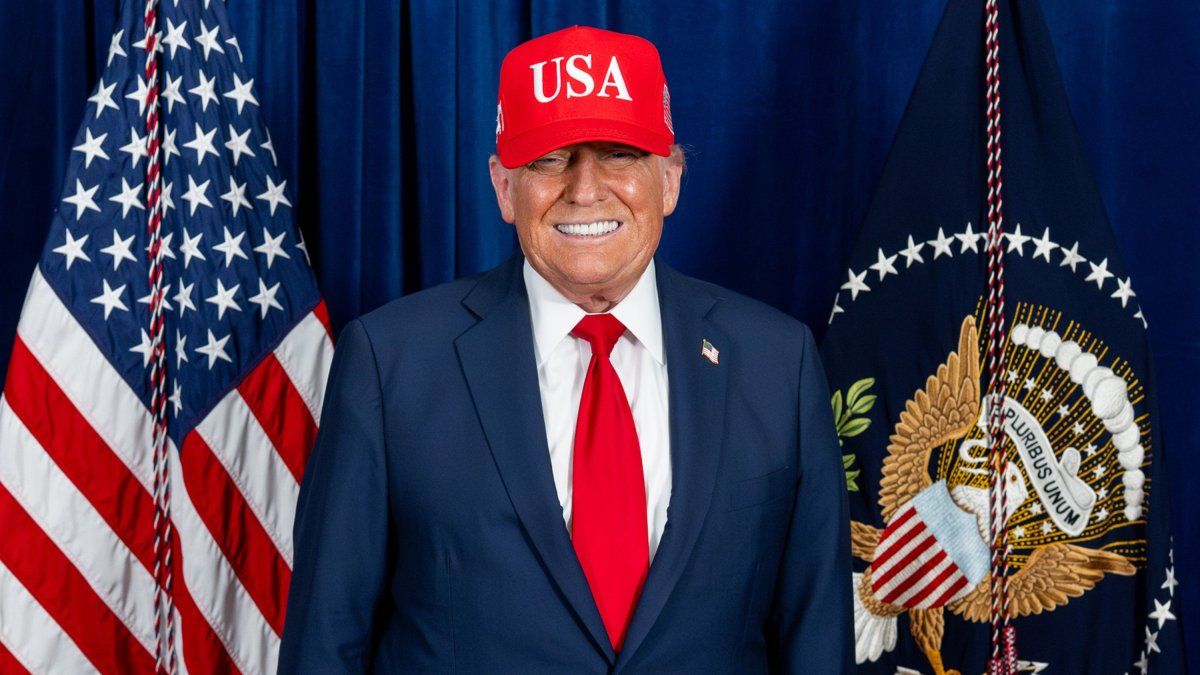Journalist: October was good in financial terms for the Government. Is it explained by structural improvements or temporary issues?
Haroldo Montagu: The Government carried out intelligent money laundering with what it allowed itself to do with it. In turn, there were important announcements during the week, linked to the approval of the 8.8 billion dollars from the IDB, World Bank and CAF. The finishing touch was from the economic team with the IMF in Washington. The market sees all this and thinks it is good news, really.
However, I make a difference between what is concrete, such as money laundering, made up of mattress dollars from the Argentines, and the other two that are promises, and do not present anything concrete yet. Of the 8.8 billion dollars that they announced, it is not that they will all enter tomorrow, there is a question of timing, it could take between 3 and 6 years perhaps. The same with the IMF, even though the Government has denied it on various occasions, there is a need not only to generate a new agreement, but for that agreement to include fresh disbursements.
Q: So, the market reaction does not necessarily determine a verdict on economic management.
HM: You have to see to believe. Until now, the markets are believing, but they have not yet seen the dollars, only those from the Argentine mattress, but investment is at very low levels, as is installed capacity, all indicators related to production are far from the levels of the year past. I am interested in marking this dissociation of the spheres that maintain a life of their own: the financial prosperity separated from the real economy.
Such great dissociation in countries like ours has a risk. Here investors are waiting to understand how sustainable the Government’s policies are. To the extent that they verify that the fiscal discipline measures are sustainable, they will be willing to disburse.
Q.: There are economists who propose that macroeconomic stabilization – the achievement that the Government claims to aim for – will be at the cost of greater inequality. Do you think the same?
HM: We are at the most difficult point of the Milei-Caputo stabilization plan. I am surprised by the projections of the 5% growth budget or the IMF itself. I don’t know what the drivers are to achieve it, if industry and commerce are falling by double digits since the Government took office. Therefore, in the case of stabilizing the macro, that is, the inflation rate does not jump, the social indicators will be at low levels.
On the other hand, I am seeing a reconfiguration of the Argentine productive structure. Sectors such as agriculture, mining, oil refining, hydrocarbons and the knowledge economy can lead growth, but they are not enough to generate conditions of full employment, with inclusive growth. They are economies very focused on exports, with little connection with the domestic market. If you look at the utilization of installed capacity, the improvement was thanks to oil refining.
For all this, there is a debate that needs to begin: once the stabilization plan is concluded, what will be the drivers of growth? What they raise is important, but the question is whether that is enough for a society to develop and grow.
Q: What is the biggest risk that you would warn about for the sustainability of economic measures?
The Government boasts of having increased the AUH and the Alimentar Card in real terms, and it is true, but in a context of worsening of all social indicators it is not enough, nor can the AUH be the only safe passage for a crisis like this.
In turn, Argentina faces its usual Achilles’ heel: the lack of dollars. The country faces large maturities next year. How are they going to meet the commitments in a context where the accumulation of reserves, which was going well until the first half of the year, began to falter, and where the only dollars that come in are not property? of the Government and we still have negative net international reserves? Despite the reduction in country risk, the Government still cannot access voluntary markets.
Q.: Milei said: “There is an opening of the stocks with silver and another opening without silver, now we are working as if we did not have it” Do you see an opening of the stocks possible, with a flexible exchange rate, in this way?
HM: It is not true that with a flexible exchange rate there is no need for reserves, because the consolidated debt was maintained, so you have prior commitments. The debt did not change, it remains at 350 billion dollars. There was only one change from the BCRA to the Treasury. This is an accounting and measurement issue regarding how the December devaluation impacted you.
Furthermore, if the IMF grants a new disbursement, it will be against the condition that they lift the stocks. In that sense, there is an unresolved debate among economists: if you lift the stocks, do more dollars come in than go out or do more dollars go out than come in? I think that the opening can now generate a strong exit effect. Others say no, that if you open the trap they will fill the field with dollars.
Q: Is there an orderly exit from the stocks?
HM: The trap has to be lifted when the Government understands that opening it does not imply reversing the processes that are being developed. If lifting the stocks implies a considerable devaluation, I would not do it. If lifting the stocks implies a run against the dollar, sacrificing the very rigid rule of the crawling peg at 2% to control inflation, I would not do it.
There must be a neat way out of the trap. The non-traumatic exit from the stocks is with dollars. Now, in the event that this is not enough and the decision is made to leave the stocks, there necessarily have to be compensation measures because that will generate an acceleration in the price level. However, I do not know what the reaction of the Government would be in that case, which is tied to the fiscal surplus and the zero balance, and that does not allow any type of countercyclical measure in case inflation increases and the income of the most vulnerable is harmed. disadvantaged.
Q.: Next year will be marked by politics, by the midterm elections. Do you think that, in this context, the Government will prioritize exchange rate pragmatism and postpone the exit of the stocks, or will it give a signal to the market, hastening its elimination?
HM: I think about the Minister’s surprising statements regarding whether you can grow with stocks. There is a guideline to interpret the logic that the Government may have. It is not something that they consider harmful to the economy or not so harmful that it does not grow.
In any case, when Caputo cited three examples of countries that grew and maintained exchange restrictions – China, Chile and Korea – he did so incorrectly because those countries understood the controls as necessary for economic growth, not that they did so in spite of them. On the one hand, this: you can grow with stocks.
On the other hand, society seems to tolerate this considerable fiscal adjustment even though we see evident signs of material worsening (greater poverty, lower wages, higher unemployment). That’s because they understand there is a prospect for improvement.
Now, the Government will be able to follow its economic plan with restraint as long as there is no reversal of this tolerance or of the market’s belief. The markets believe from mouth to mouth, from pockets to the outside, not yet.
Q.: The stability of the exchange gap occurs in a context where the Ministry of Economy validates an interest rate of 4% with a crawling peg of 2%. How long can this carry trade last in the medium term?
In that scheme there is a kind of Ponzi, that is, making a profit and leaving quickly because then I don’t know what will happen. As long as this behavior persists, this carry trade is not sustainable at all times and in all places.
In any case, at the time with Macri we saw a very strong capital inflow and very high real rates, that is not happening now, so you are controlling the ball in some way.
But that may change as they dismantle regulations. So, a scheme of this style is not sustainable even for the investors themselves, who previously had to go through the restructuring of the private debt with Alberto Fernández, as a result of the fact that they entered and then wanted to exit and could not.
Therefore, proposals for exchange regulation, regulation of the capital account, are important in countries like ours, as long as other conditions for direct investment are not improved.
Source: Ambito
I am an author and journalist who has worked in the entertainment industry for over a decade. I currently work as a news editor at a major news website, and my focus is on covering the latest trends in entertainment. I also write occasional pieces for other outlets, and have authored two books about the entertainment industry.




